25 Apr2019
By Catherine Rosa and James Zoll
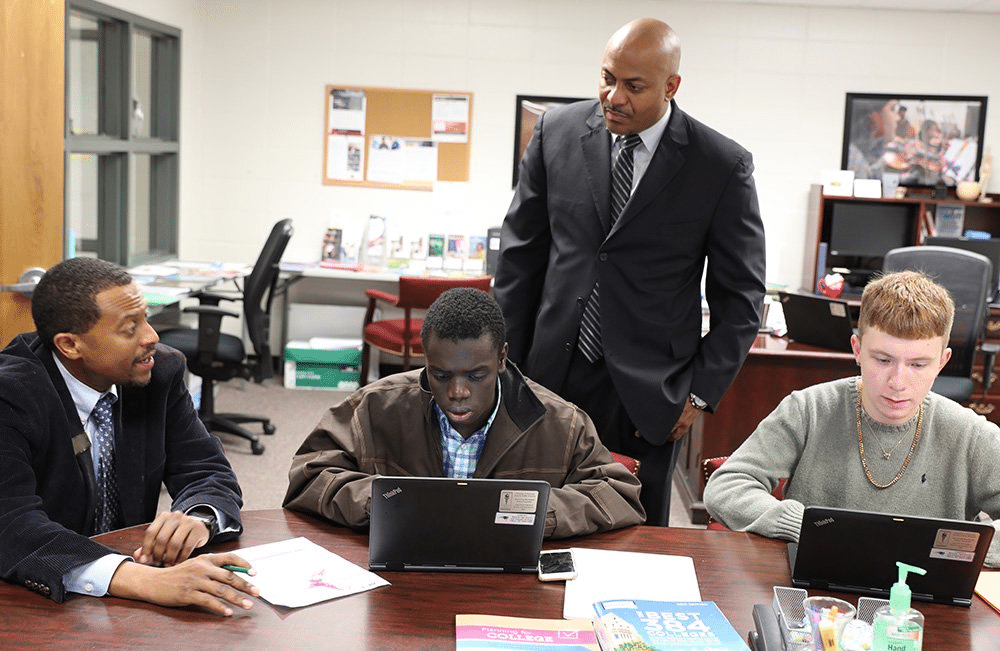
In September of 2018, University of North Georgia (UNG) Educational Leadership staff began partnership discussions with Gwinnett County Schools. The UNG educational leadership program went through several iterations and was working toward revising the program to align with the Principal Pipeline Research from the Wallace Foundation. This revision also met the requirements for the new Tier 1 certification program implemented by the Georgia Professional Standards Commission. We were new to the work and very interested in the successful, data-driven work Gwinnett County Schools Leadership development programs.
The initial discussions were about the application process and how we screen candidates, as well as, how we measured the success of our candidates beyond the obvious licensing test by the state. This was the beginning of deep thinking for us about our program. We quickly learned that to build a quality program, we needed to attract the best candidates and track them through their placements in schools as leaders to determine the effectiveness of our work. We were most impressed with Gwinnett’s systems for measuring the success of their leadership development programs. This was great timing for our program as our Tier I participants had just completed the first cohort.
The quality measures divide the process program improvement into six domains. We shared our practices in our Tier I program in each of the six areas, collecting evidence to support our work with our critical friends from Gwinnett. At the same time, Gwinnett County Schools examined its practices in its principal preparation program sharing with us as critical friends. The process was transparent and helpful. We both walked away with fresh ideas for improving our programs.
25 Apr2019
By Nadene Davidson and Jeffrey Haverland
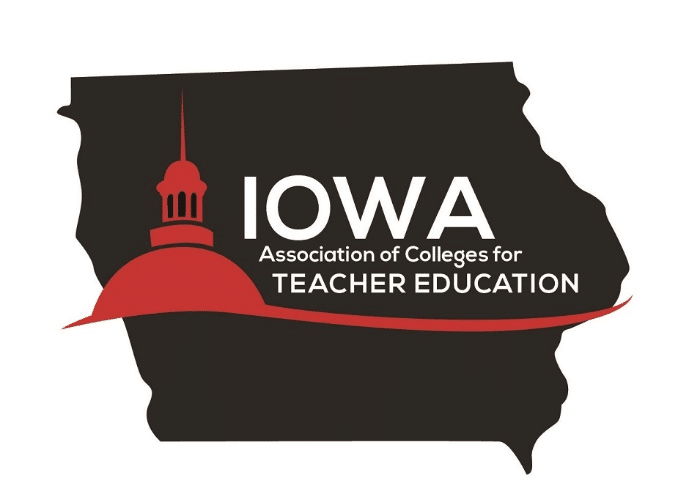 The Iowa Association of Colleges for Teacher Education (IACTE) is engaged in an initiative to bring the Model Code of Ethics for Educators (MCEE) to Iowa’s teacher preparation programs. Educators have the responsibility to ensure a safe environment and support the well-being of each and every child. The MCEE was designed as a framework to inform the decision-making process that educators can use to guide them through the gray areas of the profession based on five guiding principles. The National Association of State Directors of Teacher Education and Certification (NASDTEC) began developing MCEE in 2012 and adopted it in 2015. The MCEE is designed to protect the rights of students and support educators’ commitment to the profession.
The Iowa Association of Colleges for Teacher Education (IACTE) is engaged in an initiative to bring the Model Code of Ethics for Educators (MCEE) to Iowa’s teacher preparation programs. Educators have the responsibility to ensure a safe environment and support the well-being of each and every child. The MCEE was designed as a framework to inform the decision-making process that educators can use to guide them through the gray areas of the profession based on five guiding principles. The National Association of State Directors of Teacher Education and Certification (NASDTEC) began developing MCEE in 2012 and adopted it in 2015. The MCEE is designed to protect the rights of students and support educators’ commitment to the profession.
There are five principles of responsibility identified in the MCEE:
- Responsibility to the profession
- Responsibility for professional competence
- Responsibility to students
- Responsibility to parents/guardians, colleagues, the community and employers
- Responsible and ethical use of technology
05 Apr2019
By Brandon R.T. Frost
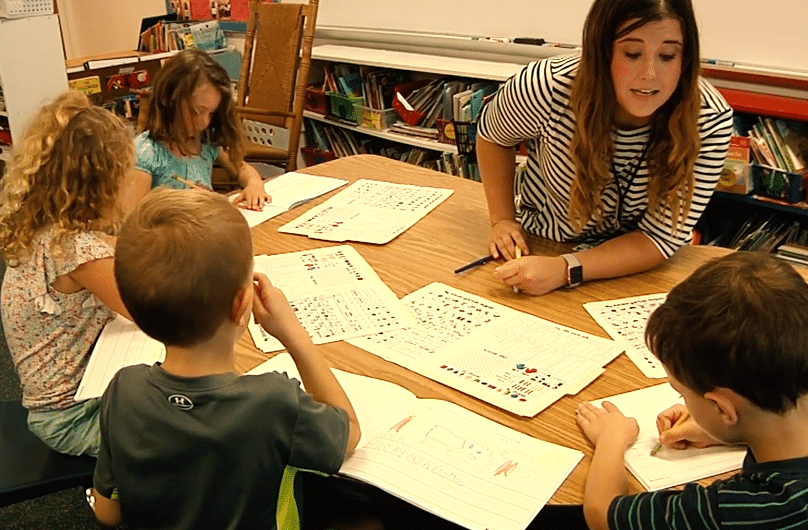
AACTE identified and documented two exemplary teacher preparation programs that ensure all of their candidates are ready to work with all students, including students with disabilities. We are pleased to feature a set of videos from each program documenting how they implement curriculum for dual certification (general education and special education) and feature extensive clinical preparation.
Bowling Green State University’s undergraduate Inclusive Early Childhood Program and Portland State University’s Secondary Dual Education Program support new and beginning teachers in teaching in inclusive classrooms. Both programs lead to certifications in general and special education. “These institutions ensure that all educators have the skills to work with students with disabilities in the 21st century,” said AACTE Consultant Jane West, “School districts scramble to hire these outstanding students, as they come with the mindset and the skillset to be effective with all students.”
24 Mar2019
By Leah Wasburn-Moses
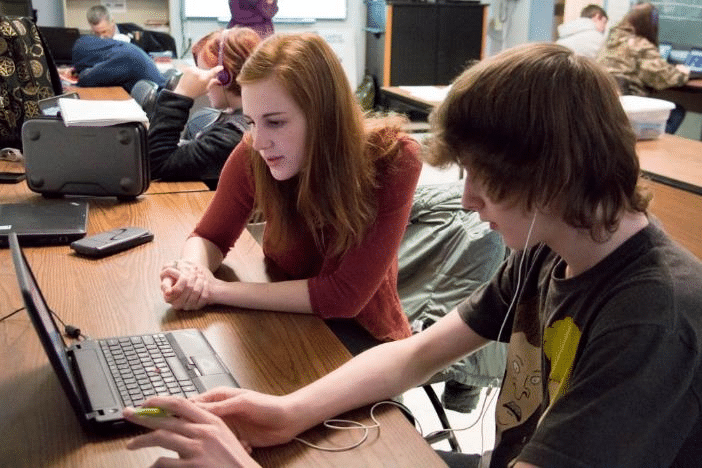
“It is a phenomenal program. It allows for all kinds of growth in both teacher candidates and high school students” – Michael Dantley, Dean, Miami University, and AACTE Board Member
“It gives students one-on-one intervention, ability to build relationships, and just increases their successes overall” – Talawanda School District Superintendent Kelly Spivey
Campus Mentors is a clinical practice model that enables teacher candidates to work with youth who are at risk. It creates classrooms on university campuses to support these young people through individualized instruction of any selected curriculum, pedagogy, technology, or assessment. The program is an evidence-based, fiscally sustainable framework that has received national recognition for its youth outcomes. Like other clinical preparation programs, Campus Mentors exposes aspiring educators to real-life challenges and rewards of the teaching profession. Schools and colleges of education, as well as partnering public schools have experienced a number of benefits from partnering with the program.
11 Dec2018
By Jerrica Thurman
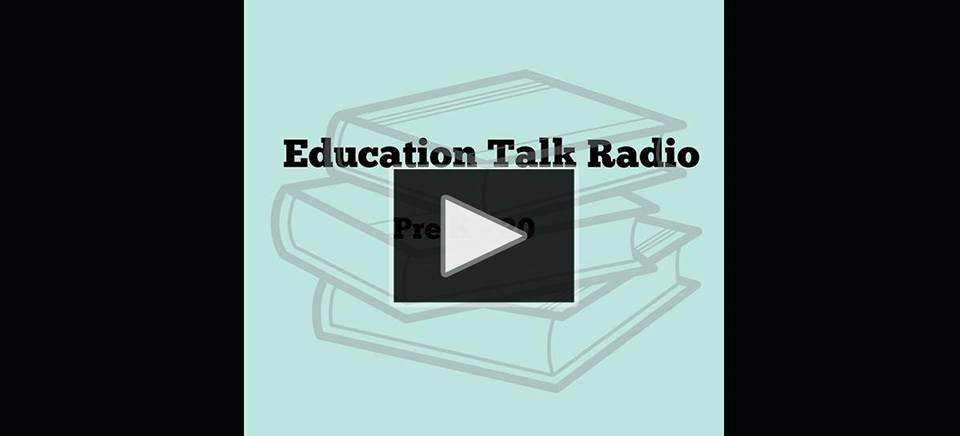
AACTE members Donna Cooner and Wendy Fothergill at Colorado State University (CSU) in Fort Collins were featured in a recent episode of Education Talk Radio to discuss their university’s School Leadership Institute. CSU launched the institute a year ago to identify effective ways to support new PK-12 principals and administrators.
The institute helps identify effective ways to support principals in their critical first year on the job based on feedback from recent program graduates. The goals of the Institute are
11 Dec2018
By Jeff Rea
This article originally appeared on oswego.edu and is reprinted with permission from the SUNY Oswego Office of Communications & Marketing.
The SUNY Oswego School of Education has joined three other educator-preparation schools in Bank Street College’s Prepared to Teach-New York Learning Network, an initiative designed to develop sustainable funding pathways for residency programs that embed teacher candidates in schools and communities for two full semesters.
Prepared to Teach-NY, recipient of a $500,000 grant from Carnegie Corporation of New York, cites evidence to support a sea change in what represents "student teaching" in the state. The new model takes a page from residencies in medical professions for deeper, richer, authentic experiences linking school placements to concurrent education coursework.
04 Dec2018
By Jerrica Thurman
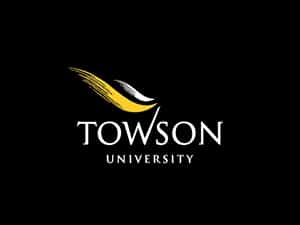
In Fall 2017, AACTE member institution Towson University’s College of Education launched a pilot program, SIMTeach@TU, to strengthen its clinical and practice-based curriculum through virtual simulation. The program features eight faculty who develop problem-based case scenarios for teacher candidates to experience real-world human interactions with avatars via the virtual reality technology called Mursion. The training simulations recreate the most demanding interpersonal challenges that teacher candidates may confront in the classroom with PK-12 students. It allows preservice teachers to practice and master the complex interpersonal skills necessary to be effective in difficult situations.
“We see simulation—or approximations of practice—work as part of the trajectory of getting our preservice teachers ready to work with real students in classrooms,” said Laila Richman, associate dean of the College of Education at Towson. “We think about this as the first phase of a university-based clinical curriculum that moves them towards being able to work with students.”
16 Nov2018
By Katrina Norfleet
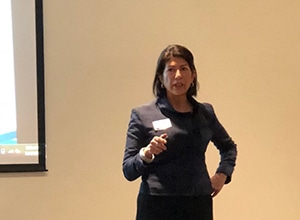
AACTE President and CEO Lynn M. Gangone recently traveled to Indiana where she met with deans of colleges and schools of education throughout the state, and representatives from the State Department of Education and national foundations to discuss educator preparation from a national perspective. Gangone also was invited to be the lead speaker at the Indiana Association of Colleges for Teacher Education’s (INACTE’s) first statewide summit, and presented data from the Colleges of Education: A National Portrait report.
Ena Shelley, an AACTE board member and INACTE member, shared how important it was to hear the trend data. “When you are working within state borders, you think it is just your state, but when you see the trend data—how long teachers are staying or not staying, the demographics—it makes it real,” Shelley said. “I think the report was so important because we really haven’t had a succinct, cohesive report like the National Portrait, which gives us real data to look at … [and ask ourselves] now what can we do about it?”
15 Nov2018
By Jerrica Thurman
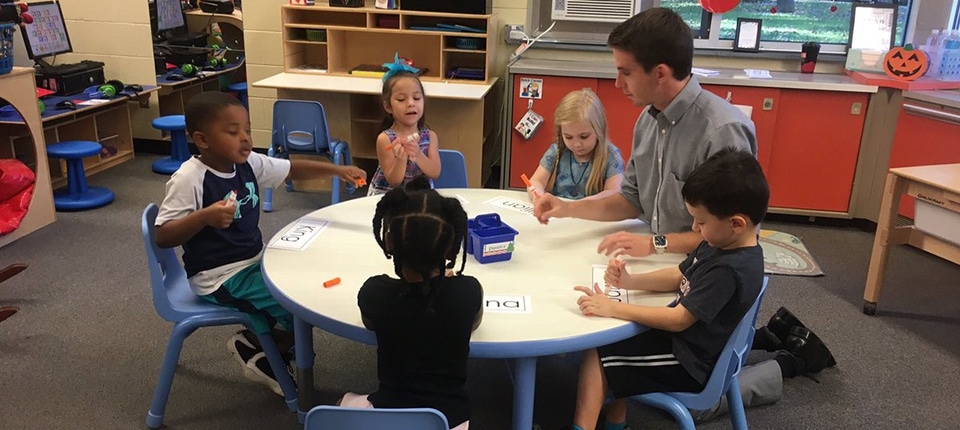
AACTE is a national partner for the University of Florida’s Collaboration for Effective Educator Development, Accountability, and Reform (CEEDAR) Center, which helps states and institutions of higher education to develop the ability of every teacher to prepare students with disabilities for college and careers. As a federally funded multi-million dollar project, CEEDAR works with AACTE and others to promote the preparation of all educators to have the mindset and skillset for effectively instructing students with disabilities along with all other students in the mainstream classroom.
“This initiative is about ensuring that all educators have the skills to work effectively with students with disabilities,” said AACTE Consultant Jane West, who leads the Association’s work with CEEDAR. “Special education has too often been considered a place and not a service. We are highlighting and promoting preparation for both general and special educators so they can provide effective instruction to students with disabilities in inclusive ways with an eye toward raising expectations and undermining the stigmatizing of students with disabilities.”
05 Nov2018
By Brian McNeill

This article originally appeared online at news.vcu.edu and is reposted with permission.
The U.S. Department of Education has awarded a $4.97 million grant to expand Richmond Teacher Residency, help provisionally licensed science, technology, engineering and math teachers move toward full licensure, and provide math and science training to hundreds of local elementary and special education teachers.
Richmond Teacher Residency, a program in the Virginia Commonwealth University School of Education, is an intensive, school-based teacher preparation program that integrates a research-supported approach for effective teaching with real-world classroom experience. Residents teach in local schools under the mentorship of a veteran teacher, while also earning a graduate degree in either education or teaching from VCU.
26 Oct2018
By Jerrica Thurman
The Colorado Department of Higher Education announced this month that it has awarded nearly $2 million to 17 collaborative projects designed to recruit and retain more educators as part of the Plan Into Action grant established in partnership with the Colorado Center for Rural Education. Of the recipients, nine are AACTE member institutions, which have developed initiatives to combat teacher shortages. The other grantees include school districts, boards of cooperative educational services, and traditional and alternative educator training programs from across the state. The projects will establish teacher residency programs, leverage technology for improved professional support, and encourage more teacher candidates to specialize in high-need content areas.
“Teachers are the backbone of our education system and critical to our state’s long-term success,” CDHE executive director Dan Baer said. “These funds will strengthen the relationships among our institutions, alternative programs and the schools in their backyard, helping communities cultivate their own teacher corps and better support those already in the classroom.”
17 Oct2018
By Matt Smith
This article originally appeared online at news.ecu.edu and is reposted with permission.
ECU research group studying effects of school leadership secures $9.7M grant
A group of East Carolina University researchers studying the effects of school leadership has secured a five-year, $9.7 million grant from the U.S. Department of Education.
17 Oct2018
By Deborah Koolbeck

AACTE has awarded five state chapters the 2018-19 AACTE State Chapter Support Grant. The recipients are as follows:
- Arizona
- Colorado
- Indiana
- Iowa
- New Jersey
Each year, AACTE and the Advisory Council of State Representatives (ACSR) Executive Committee select recipients of the State Chapter Support Grants to help strengthen the capacity of the chapters on various levels, including advocacy and statewide collaboration to meet key challenges, as well as strengthen AACTE’s relationship with state chapters.
15 Oct2018
By Jerrica Thurman
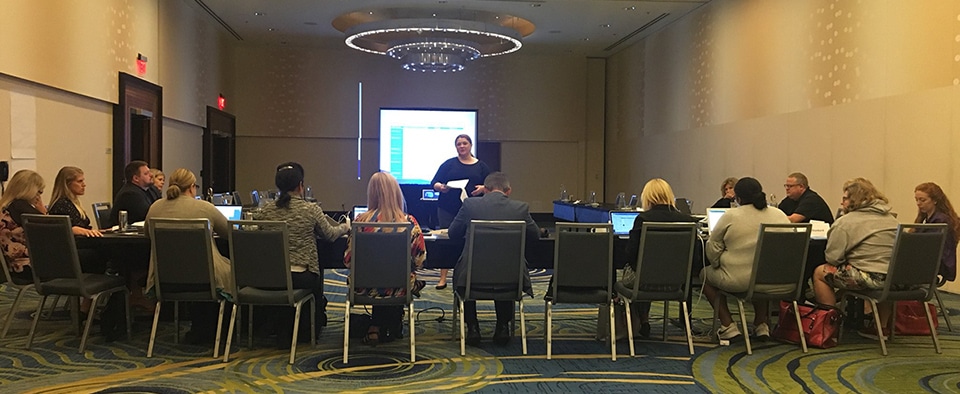
Nearly 40 members of the AACTE Clinical Practice Commission (CPC) and the Special Education Task Force met in Washington, DC on September 24-26 to discuss their separate and shared initiatives that serve as next steps for advancing the new CPC report. Released in January 2018, A Pivot Toward Clinical Practice, Its Lexicon, and the Renewal of Educator Preparation by the CPC offers a framework, guidance, and common lexicon to expand the operationalization of clinical educator preparation. Its 10 proclamations and tenets identify highly effective and evidence-based practices for embedding teacher preparation in the PK-12 environment.
During the planning session, the CPC developed a working plan to advance its emissary work and to create a site-based peer-coaching model. The Taskforce focused on finalizing a series of tenets that will be added to the existing CPC proclamations to provide more specific practice recommendations for special and inclusive educator preparation.
“The CPC met on the first day to discuss the next round of their work, which is to share findings of the report more broadly through focused emissary work and the development of peer coaching strategies,” said Amanda Lester, AACTE director of programs and professional learning. “This emissary work includes a defined plan that will help AACTE members learn more about how to implement the report’s research for developing or expanding their clinical practice model.”
09 Oct2018
By Deborah Koolbeck
The U.S. Department of Education (DOE) named the 2018 recipients of the Teacher Quality Partnership (TQP) grant program on Friday, September 28. In total, the DOE funded 17 grantees from the $43.1 million appropriated by the U.S. Congress in the Fiscal Year 2018 Labor, Health and Human Services, Education, and Related Agencies bill.
The TQP grant program is the only federal initiative dedicated to strengthening and transforming educator preparation at institutions of higher education (IHEs). To be an eligible grant recipient, the IHE must offer a baccalaureate or graduate program in education, and collaborate with PK-12 partners. Other requirements include the IHE’s educator preparation program and college of arts and sciences work in partnership with a high-need school or schools in a local, high-need district. This helps prepare teacher candidates to teach in high-need fields by providing practical experience in these schools during their training. The innovative partnerships between IHEs and PK-12 schools transform educator preparation programs as well as provide benefits to teachers in the classroom.








 The Iowa Association of Colleges for Teacher Education (IACTE) is engaged in an initiative to bring the Model Code of Ethics for Educators (MCEE) to Iowa’s teacher preparation programs. Educators have the responsibility to ensure a safe environment and support the well-being of each and every child. The MCEE was designed as a framework to inform the decision-making process that educators can use to guide them through the gray areas of the profession based on five guiding principles. The National Association of State Directors of Teacher Education and Certification (NASDTEC) began developing MCEE in 2012 and adopted it in 2015. The MCEE is designed to protect the rights of students and support educators’ commitment to the profession.
The Iowa Association of Colleges for Teacher Education (IACTE) is engaged in an initiative to bring the Model Code of Ethics for Educators (MCEE) to Iowa’s teacher preparation programs. Educators have the responsibility to ensure a safe environment and support the well-being of each and every child. The MCEE was designed as a framework to inform the decision-making process that educators can use to guide them through the gray areas of the profession based on five guiding principles. The National Association of State Directors of Teacher Education and Certification (NASDTEC) began developing MCEE in 2012 and adopted it in 2015. The MCEE is designed to protect the rights of students and support educators’ commitment to the profession.







